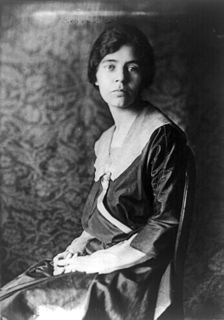A Quote by Kofi Annan
The United Nations has long recognised that the imagination, ideals and energies of young men and women are vital for the continuing development of the societies in which they live. And since its inception in 1948, AIESEC has contributed to this development by serving as an agent of positive change trough education and cultural exchange.
Quote Topics
Related Quotes
I spent the first years working in Jordan trying to learn as much as I could about what was taking place in the country, about where there were gaps in the development process that needed attention. Inevitably, there were certain common denominators which are fairly common to all developing societies, perhaps to all societies: that quality education be accessible to everyone, not just a limited elite few; the sustainable conservation of natural resources; the full engagement of women in national development; and the value of cross-cultural exchange and understanding to international relations.
Norway, Iceland, Australia, Canada, Sweden, Switzerland, Belgium, Japan, the Netherlands, Denmark, and the United Kingdom are among the least religious societies on earth. According to the United Nations' Human Development Report (2005), they are also the healthiest, as indicated by life expectancy, adult literacy, per capita income, educational attainment, gender equality, homicide rate, and infant mortality. . . . Conversely, the fifty nations now ranked lowest in terms of the United Nations' human development index are unwaveringly religious.
Since the moment of the United Nations' inception, untold energies have been expended by governments not only toward the exclusion of persons of principle and distinction from the organization's leading positions, but toward the installation of men whose character and affiliations would as far as possible preclude any serious challenge to governmental sovereignty.
It is a sad but undeniable reality that people have died in the line of duty since the earliest days of the United Nations. The first was Ole Bakke, a Norwegian member of the United Nations guard detachment, shot and killed in Palestine in 1948. The toll since then has included colleagues at all levels.
Adolescence has been recognised as a stage of human development since medieval times--long, long before the industrial revolution--and, as it is now, has long been seen as a phase which centers on the fusion of sexual and social maturity. Indeed, adolescence as a concept has as long a history as that of puberty, which is sometimes considered more concrete, and hence much easier to name and to recognize.
The aim of education should not be to teach how to use human energies to improve the environment, for we are finally beginning to realize that the cornerstone of education is the development of the human personality, and that in this regard education is of immediate importance for the salvation of mankind.









































